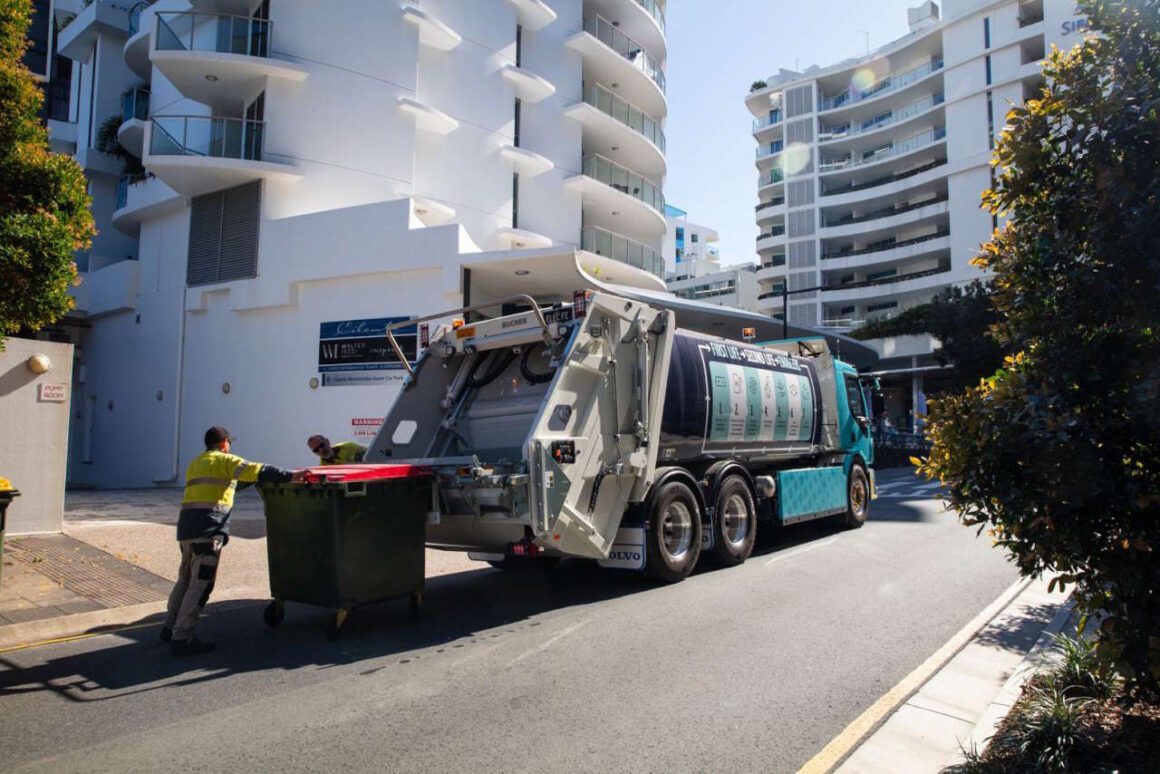Volvo Trucks says one of its medium duty electric trucks – the FE Electric – will be trialled as a rubbish collector by leading Australian waste management company JJ’s Waste & Recycling.
The Volvo 6×2 FE Electric, which featured at the company’s stand at the Brisbane Truck Show earlier this year, has been fitted with a rear-loading 16-cubic-metre waste body, capable of carrying a payload of up to 7 tonnes, and is designed for urban operations.
It will operate with four batteries with a combined capacity of 265kWh, and boasts a range of up to 220 kilometres. JJ’s Waste & Recycling will put the FE Electric through its paces during a three-month trial on Queensland’s Sunshine Coast.

“This is the perfect opportunity for us to understand how we can decarbonise our fleet over time,” said Joe Branagan, operations manager for JJ’s Waste & Recycling.
“Clearly, we can’t just switch to electric overnight so partnerships like the one we have with Volvo Trucks are vital to see what applications we can put electric trucks to work in now as well as what the future of zero emissions waste management could look like.”
This is the first time that the Volvo FE Electric is used for waste management services in Australia. Earlier this year, an FE Electrics delivered to Volvo’s company’s logistics partners, French-based Geodis, became its first electric truck sale in Australia.
The 6×2 FE Electric was delivered in February for use transporting parts from Geodis’ Matraville headquarters to the Minto distribution centre of Volvo Group Australia. It was the first of more than 80 electric truck orders in Australia since the FE was first put on offer nearly a year ago in Australia.
“Electromobility and waste management really do go hand in hand,” said Gary Bone, vice president of Volvo Trucks Australia.
“The stop start nature of this application in densely populated urban areas should prove to be a promising zero emissions solution for our cities.
“Recent developments in battery technology, which will flow down to Volvo’s medium duty electric range have seen significant increases in both range and charging performance which will only add to the attractiveness of electric vehicles in waste applications.”
Joshua S. Hill is a Melbourne-based journalist who has been writing about climate change, clean technology, and electric vehicles for over 15 years. He has been reporting on electric vehicles and clean technologies for Renew Economy and The Driven since 2012. His preferred mode of transport is his feet.


